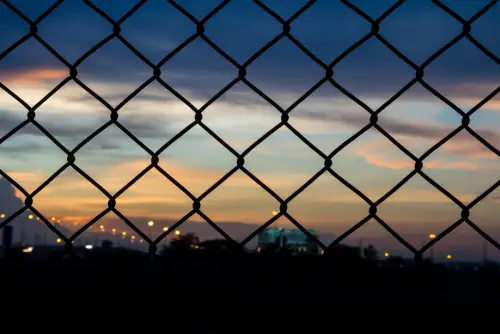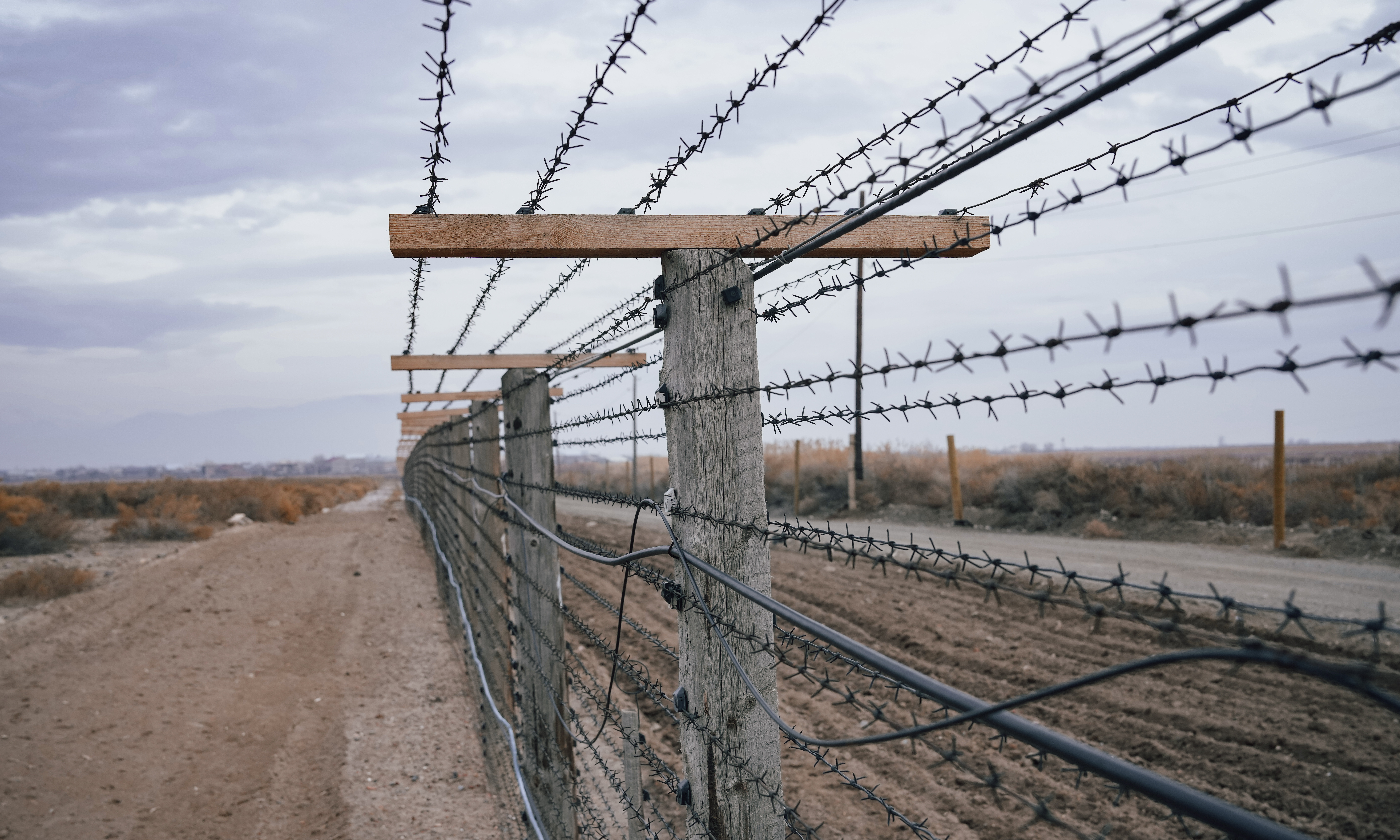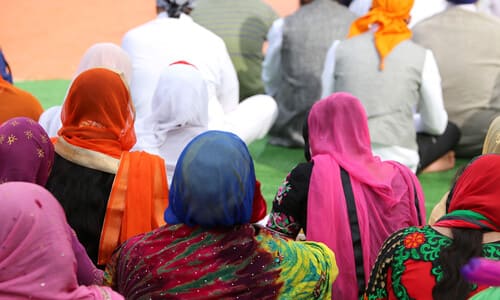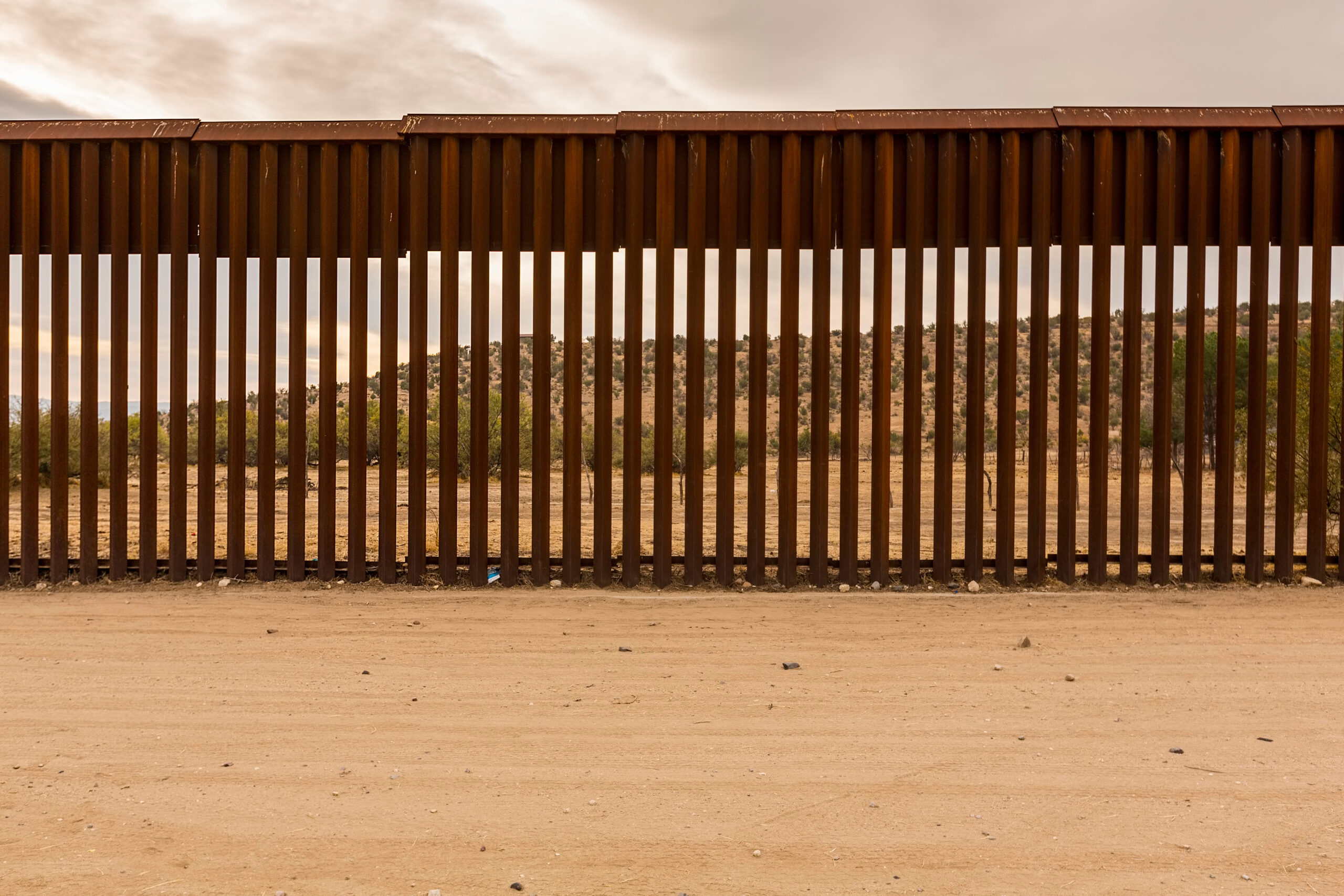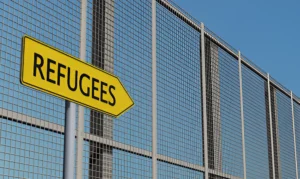 A surge in Indian asylum seekers at U.S. borders in recent years, many of them hailing from the state of Punjab, has changed the face of U.S. immigration. Now, after Mexico and Central American countries, India contributes the fifth-highest number of migrants by nationality when it comes to U.S. border encounters.
A surge in Indian asylum seekers at U.S. borders in recent years, many of them hailing from the state of Punjab, has changed the face of U.S. immigration. Now, after Mexico and Central American countries, India contributes the fifth-highest number of migrants by nationality when it comes to U.S. border encounters.
The driving force behind this 10,000-plus-mile journey is a vision of change from one reality to another. On one side of the equation is the current situation of Indian nationals, which has increasingly become unsafe for ethnic and religious minorities since the rise of the Bharatiya Janata Party (BJP). Many individuals, especially younger agricultural workers, also feel satisfied with the current economic prospects of themselves and their families. On the other side of the equation is the expected result: the dream-like version of America, where jobs are plentiful, and people have protections from persecution, free from worry or fear.
The unfortunate reality is that there’s a third factor, one many migrants don’t wish to consider too extensively: the extremely dangerous, often deadly journey they face to get from A to B, often at the cost of most of their assets.
Organizations and criminal networks promising to make the change from Indian struggles to American opportunities tend to gloss over that middle part. Known as “donkers,” they have built an entire illicit industry — one that preys on the dreams of the most vulnerable in order to extract them of all their cash for a shot at making it across the U.S. border.
“Donkers” Dupe Desperate Migrants With Fake Visas Before Downplaying the Perils of Reaching the U.S. Border
The journey from Punjab to the U.S. border is anything but direct. Often, human smuggling operations will use falsified documents and other techniques to exploit loopholes in layovers for international flights. By booking flights leaping through multiple countries, passengers can avoid the most intense types of scrutiny while scraping by on the flimsiest of papers.
These erratic routes have been dubbed “donkey flights,” named after a Punjabi idiom describing someone who hops from place to place.
People are often solicited by these smuggling operations through hush-hush contacts, who may put the word out in order to drum up interested parties. They may also tend to operate as a type of front, posing as an attorney or other legitimate figure who can help the aspiring U.S. immigrant obtain a student visa “easily,” only to say their application was denied. Then, they will raise the idea of entering the U.S. through unauthorized means, where the migrant can then request asylum.
While many operate as a front or low-key organization, other human smugglers are not so shy. They have hired personalities, often attractive young Punjabi men, who post videos on YouTube glorifying the act of migrating while downplaying the risks.
Another factor is word-of-mouth; the Economic Times reported in 2020 that many aspiring migrants are tempted to make the journey after others complete it successfully. This has “given rise to a situation where nearly every Punjabi has one relative or another in the US or Canada,” ET wrote. “Their stories now fuel the ambitions of relatives who dream of similar kickstarts.”
Most Migrants Seek Safety in America After Threats and Attacks Back in India
While some migrants are indeed fleeing India because of bad economic harm, experts like U.S. Immigration Attorney Deepak Ahluwalia are apt to point out that fear of persecution and harm, not desire for economic opportunity, fuel the majority of asylum-seekers he has worked with.
“My experience with clients from Punjab, Delhi, Haryana, UP, and Himachal Pradesh shows that political dissidents, minorities, LGBTQ community members, and even young people in intercaste marriages are feeling threatened and undertaking the long and arduous journey to seek asylum in the US through Central and Latin American countries,” he said when speaking to ET in 2020.
Lending credence to this assertion is the fact that nearly all who undertake “donkey flights” are put at great risk, with treks through jungles filled with dangerous animals as well as long rides in un-air-conditioned buses and trucks through a gauntlet of gangs and corrupt police looking to exploit them. Ultimately, whether the migrant makes it or not to the U.S., they then have no assets — and often a mountain of debt to repay to their smugglers.
Get Assistance From an Experienced U.S. Immigration Attorney
If you are seeking asylum, facing deportation, or have other goals related to the U.S. immigration system, know that you don’t have to face your predicament alone. Singh Ahluwalia Attorneys at Law was founded on the principle that everyone deserves a chance at justice and the opportunity to exercise their full legal rights at every step in the immigration process.
Find out how we can help and why we’ve been thanked by our thousands of past clients who found success with their goals during a confidential and no-obligation case review. Call 559-878-4958 or contact us online to schedule your appointment today.
